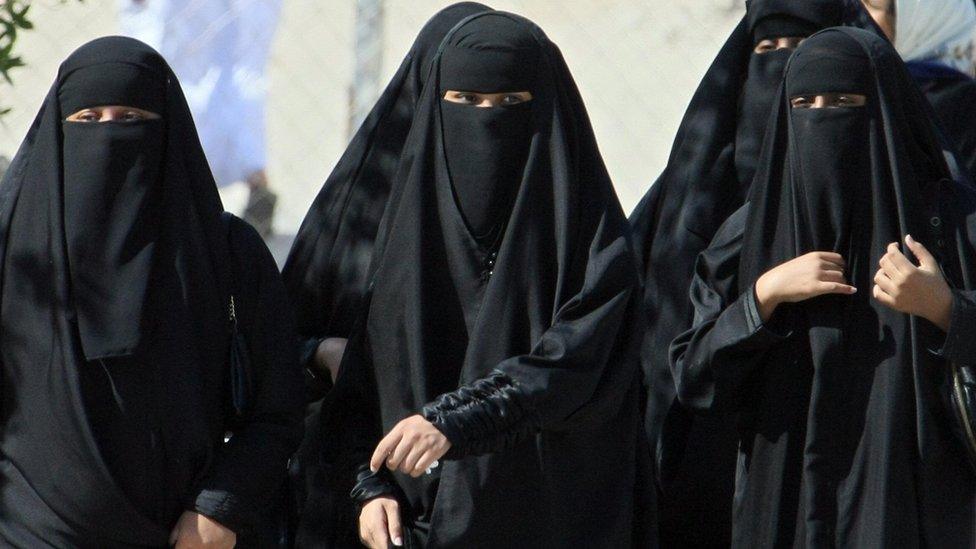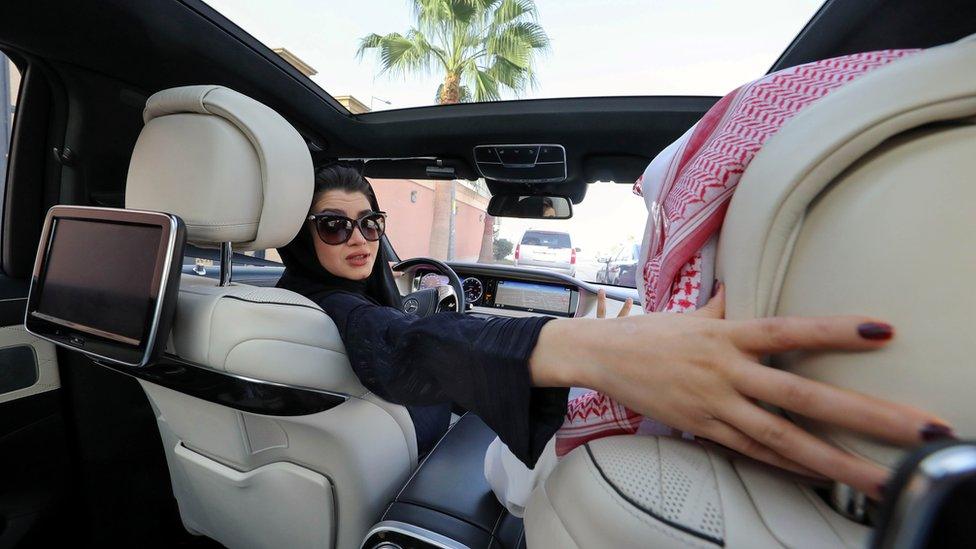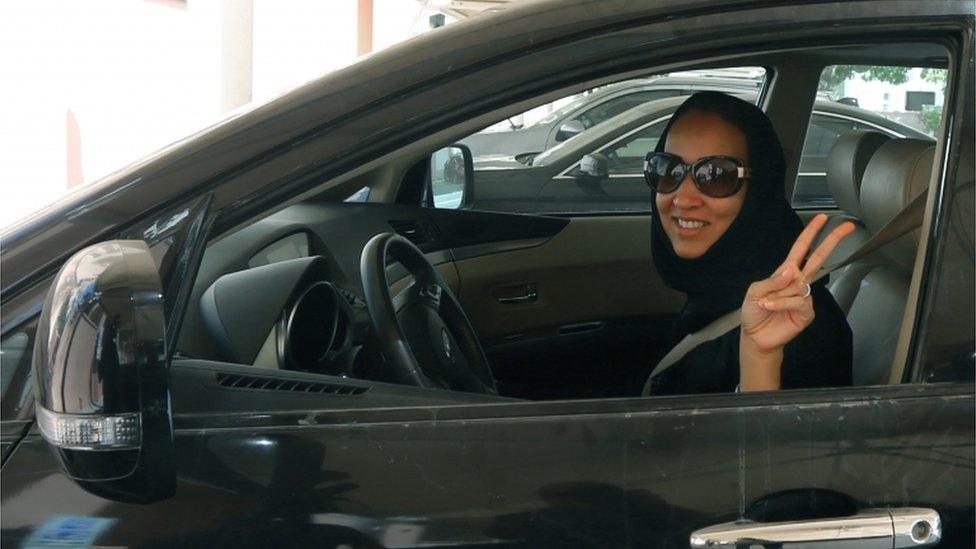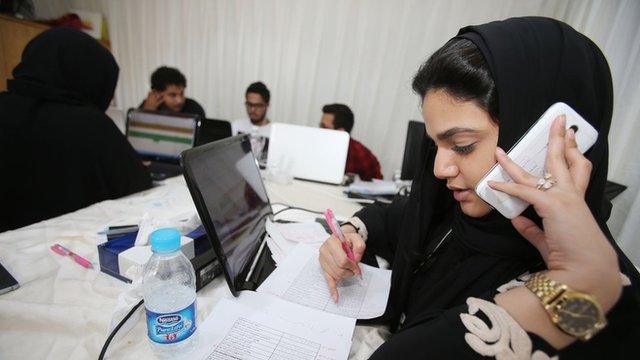Saudi Arabia: Women are now allowed to apply for a passport
- Published

Campaigners say Saudi Arabian women have a long way to go before the kingdom considers them equal to men.
Women who live in Saudi Arabia are now able to travel abroad without the permission of a man.
Until Friday, Saudi Arabian women were not allowed to apply for a passport without authorisation.
Women over the age of 21 in the kingdom are also now able to register a child's birth, a marriage or a divorce.
This comes a year after women were given the right to apply for a driving licence in the country.
Back in 2015, women were given the right to vote on local issues - however, they are still not able to vote in major elections.
The new laws also cover employment regulations - now, all citizens have the right to work without facing any discrimination based on gender, disability or age.

Saudi Arabian women were allowed to apply for driving licences in June 2018
This is all part of Crown Prince Mohammed bin Salman's programme to modernise some aspects of Saudi society.
However, many campaigners say more needs to be done for women's rights in the country.
Why are the rules different in Saudi Arabia?
Why couldn't women drive in Saudi Arabia?
The Kingdom of Saudi Arabia follows a particularly strict brand of Islamic law known as 'Wahhabism'.
It says that men and women should be kept separate and that women should wear veils to cover themselves.
It's also the law in Saudi Arabia that every woman must have a male guardian. This is often a relative or the woman's husband.
In January 2018, women in Saudi Arabia were allowed to watch football in a stadium for the first time.

Women cheer from the family section at King Abdullah Sports City after being allowed to watch a football match for the first time
In 2011 the previous leader King Abdullah decided to start appointing women to his royal advisory council, the Shura.
Rules were also changed to allow women to play sports and compete in the Olympics.
What can women still not do in Saudi Arabia?
Although there have been changes, life is still very different for women in Saudi Arabia compared to other parts of the world.
They also aren't allowed to appear in public without wearing a full-length black robe called an 'abaya', which covers their whole body.
Hospitals, banks and medical colleges are the only places where women are allowed to mix with boys or men who aren't relatives.
In shops "separation walls" have been built to stop men and women workers from mixing together, and in restaurants any men and women who aren't with their family have to sit separately.
But there are exceptions in the country: Non-Saudi women are legally permitted a more relaxed dress code, and if they are not Muslim they are allowed to show their hair.
- Published24 June 2018

- Published13 January 2018

- Published12 December 2015

